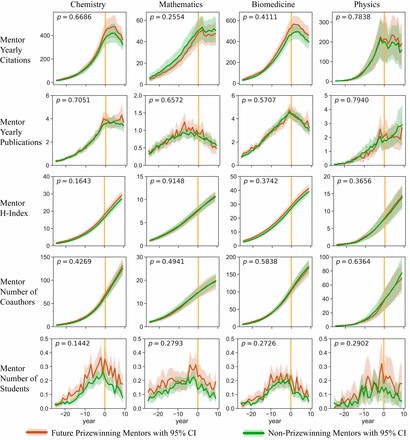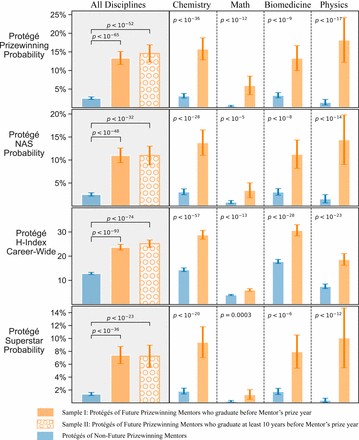News
Einstein believed that mentors are especially influential in their protégé’s intellectual development. However, there still has a lack of systematic study on the significance of mentorship. Researchers from Southern University of Science and Technology (SUSTech) and Northwestern University have integrated and analyzed new and large-scale mentor-mentee relationship data, scientific publications, and scientific awards data.
On June 10, Dr. Yifang Ma (Statistics and Data Science) published a paper titled “Mentorship and protégé success in STEM fields” in the high-impact academic journal, Proceedings of the National Academy of Sciences (PNAS). It has revealed the influence of mentors’ influence on the success of their students by adopting the CEM (Coarsened Exact Matching) approach.
In history, Socrates mentored Plato, who mentored Aristotle. Early in the 1920s, scientists had debated mentorship’s role in the development of scientific talent. Albert Einstein believed that mentors are supposed to impart new and independent thinking to students rather than merely pass on the knowledge learned from books, “Education is not the learning of facts but the training of the mind to think,” he said. The NSF reported that “breakthrough scientists” cite “an intimate association with a great inspiring teacher” as a dominant factor in their success. Historically, many Nobel Laureates have also trained students to win the Nobel Prize.
The analytical challenge in studying mentorship is one of causality, which results in highly talented mentors attracting highly talented students. It becomes indeterminate as to whether the success of students is due to their innate talent or mentorship.
To minimize this causal issue, the authors designed a quasi-experiment according to the observational data. They divided mentors into two groups. The first group was matched with future prizewinning mentors. The control group was matched with mentors of similar scientific reputations that will not win prizes in the future.
Given the matching results, mentors of equivalent reputation and record should attract students of similar caliber who, in turn, have similar expected levels of success based on innate talent and equivalent academic environment. The only difference is that the future prizewinning mentors have tacit skills that are associated with conducting extraordinary research, which will transfer to their students. By comparing the academic performance, scientific awards, and reputation of students of the two groups of mentors, it would be obvious to investigate whether the students inherit those tacit skills in creating and communicating prizewinning research from their mentors or not.
The following picture tells about the uniform statistical similarity of matched mentors mentioned before. Data show that the two groups have equivalent records and reputations from the start of mentors’ careers to the prize year of the future prizewinning mentors. The only exception is for the hidden talents of the future prizewinning mentors.

To account for the time-lag associated with the mentor winning prizes, the researchers focused on the success of students who graduated before their mentor’s prize year. As shown, students of future prizewinning mentors have significantly higher probabilities of success across different performance fields and educational fields. It shows that they are more likely to become “superstar scientists” in the future compared to those of non-prizewinning mentors.

The researchers adopted regression models to validate the previous results. Their results indicate the patterns of the dissimilarity of the mentorship-protégé’s topic and co-authorship, as it shapes the link between mentorship and mentee success.
In summary, although the mentorship positively affected the success of students, they are still supposed to keep their thinking independent and innovativeness instead of blindly following their mentors’ research path. The significance of mentorship is just as the proverb says, “Give a man a fish, and you feed him for a day; teach a man to fish, and you feed him for a lifetime.”
Dr. Yifang Ma is the first author of the paper, and Southern University of Science and Technology and Northwestern University are the co-corresponding units. The corresponding author was Professor Brian Uzzifrom Kellogg School of Management, Northwestern University.



